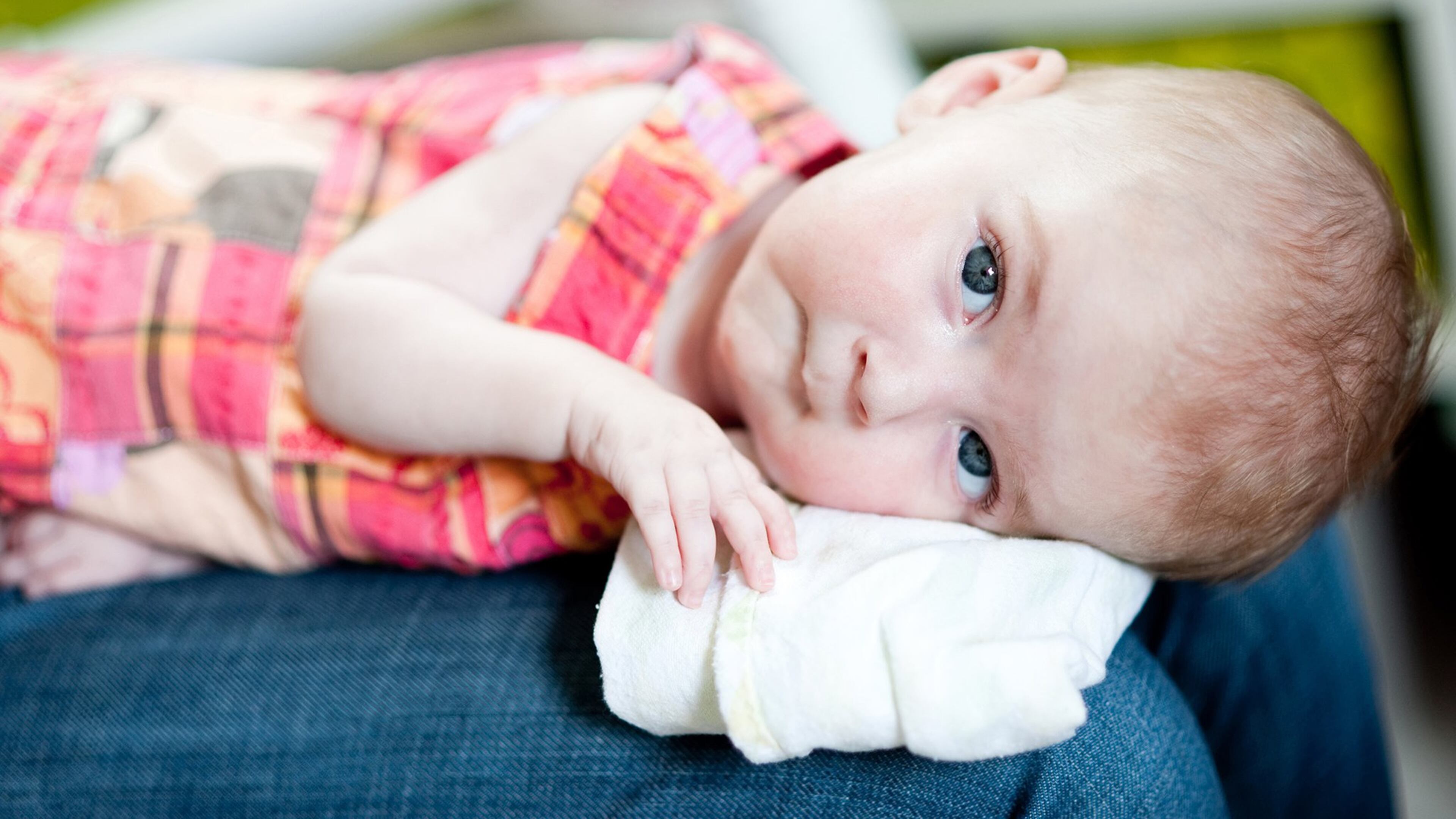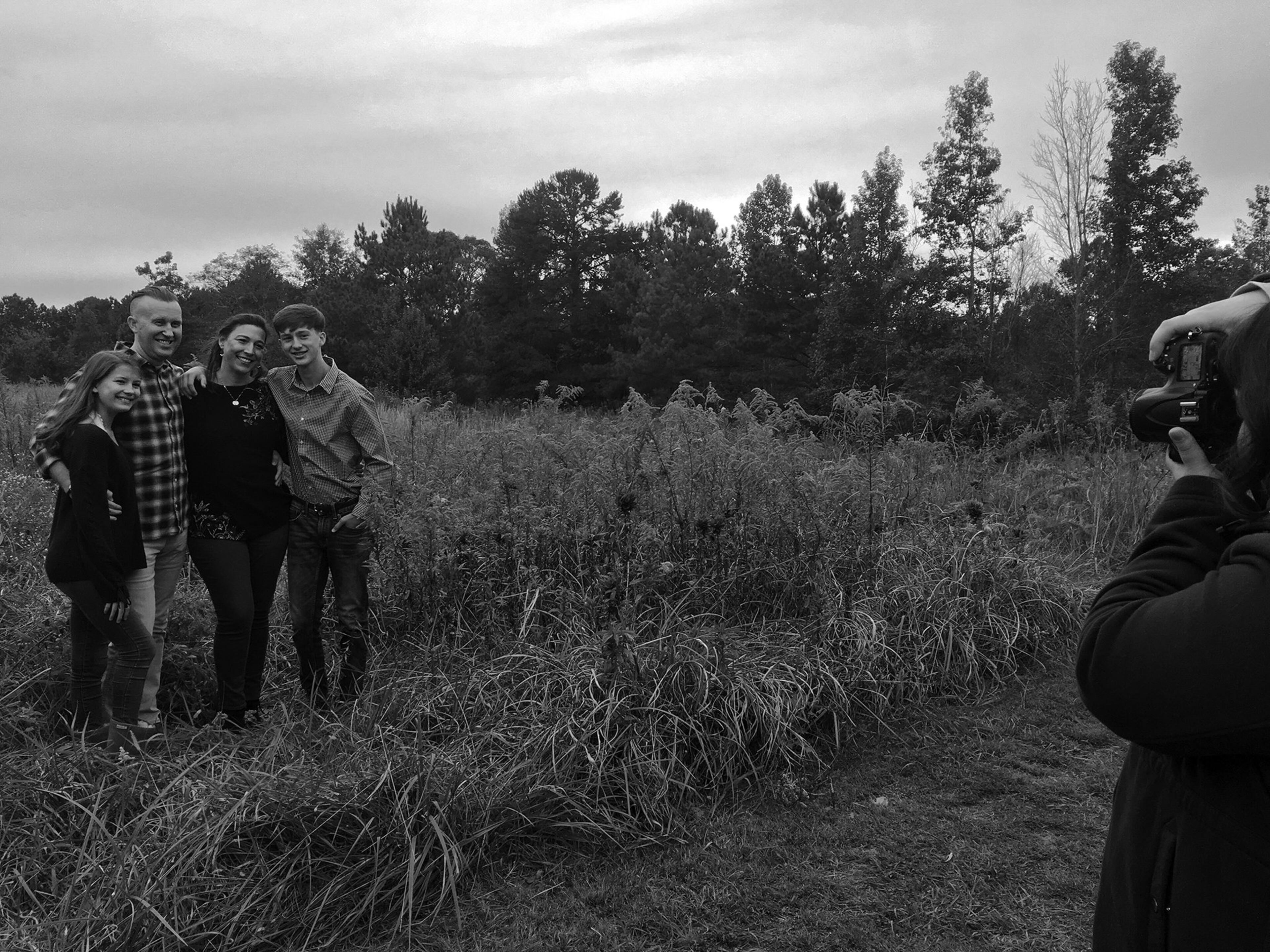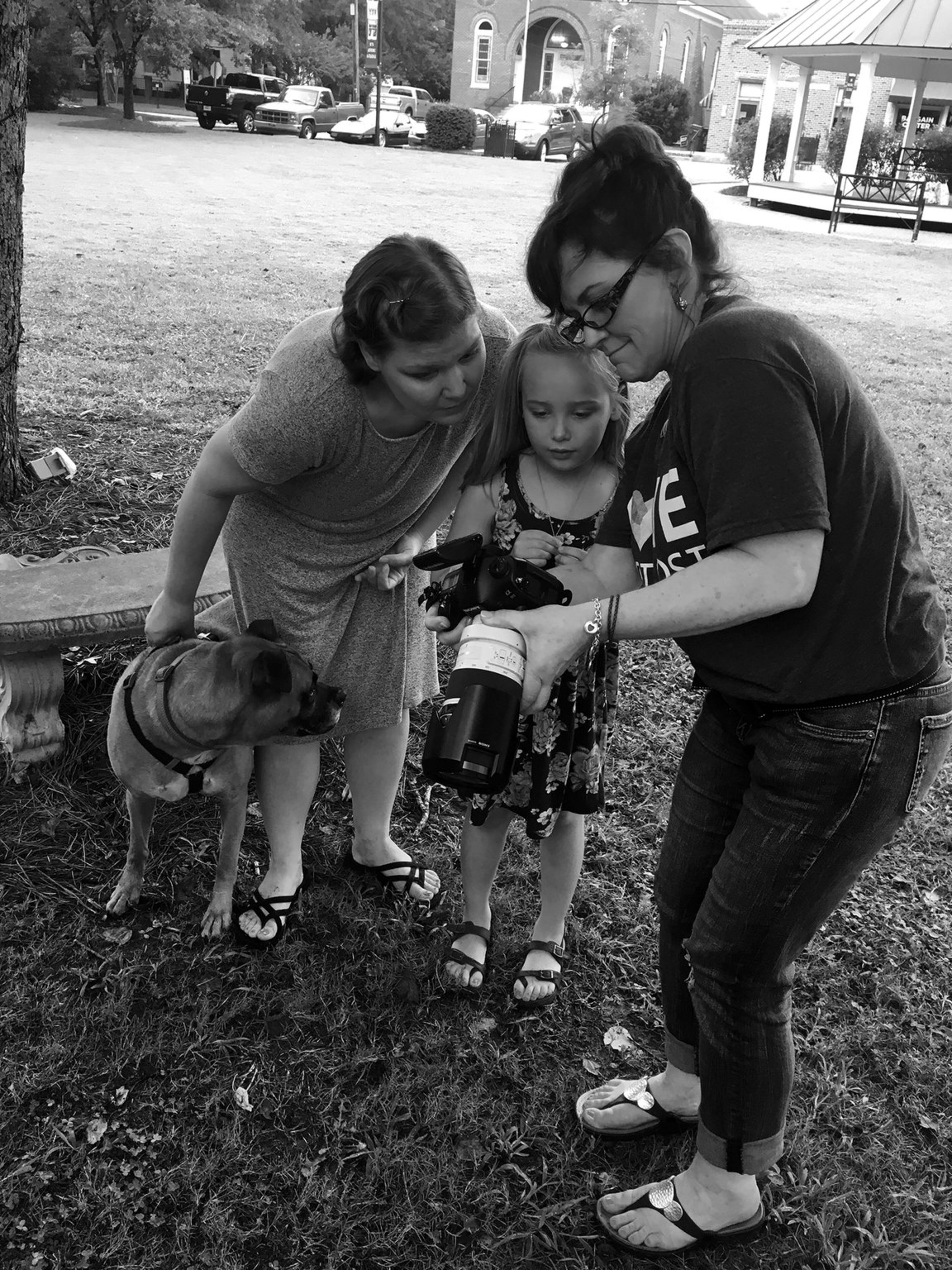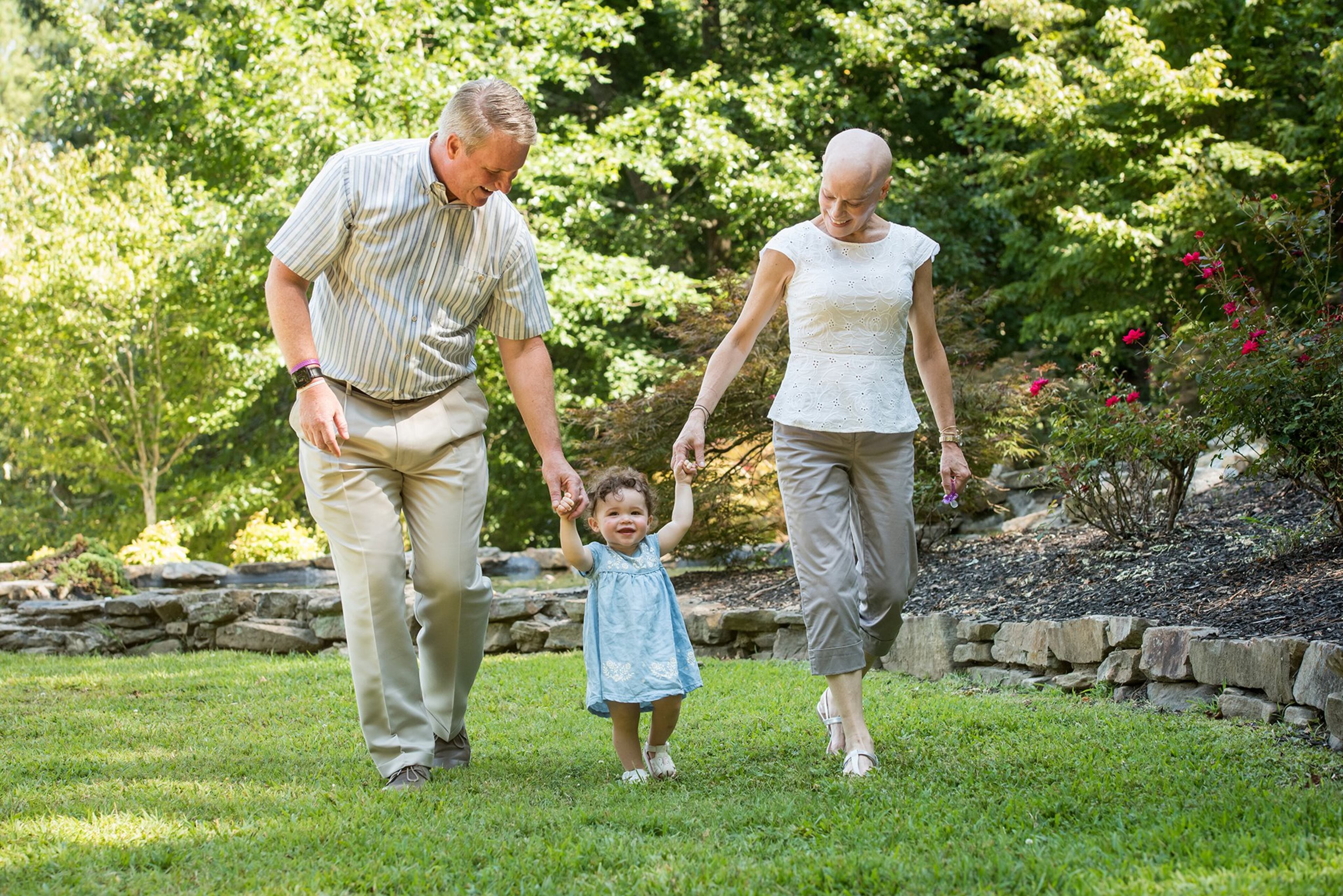Dunwoody nonprofit preserves final moments, changing how we grieve

A picture says a thousand words.
Some capture memories vivid enough to transport people back to happier times. Others are reminders of loss, providing a poignant punch back to reality that something has changed.
It’s rare, but some photographs manage to say all of that and much more, packing pain, grief, gratitude and joy into a rectangular frame.
The photos Dunwoody-based nonprofit Love Not Lost attempts to capture fall into that category, with each picture conveying well past a thousand words. The organization provides photo sessions for families facing terminal illnesses, which the founder, Ashley Jones, can empathize with because, after all, she’s been through it.
“It wasn’t my goal in life to set out and start a nonprofit, but after losing our daughter to a terminal illness, photos just played such a huge role in my grieving and healing,” Ashley said. “I knew I wanted to give that gift to other people.”
‘Our little Nemo’
Ashley and her husband, Kyle, were the first of their friend group to get pregnant. They were figuring it out — Guinea pigs, as she called it. After delivering her daughter, Skylar Marie, in November 2009, everything seemed normal for about a month.
However, then Ashley noticed Skylar’s right arm begin to curl up like a chicken wing. While it seemed odd, she saw a parallel to one of Pixar’s most endearing films.
“At first, we were like that’s kinda cute,” she said. “‘Finding Nemo’ was a big thing at the time, so we were like, ‘Oh, that’s our little Nemo’ — the gimp arm.”
Their pediatrician said to keep an eye on it after their one-month checkup, but the situation drastically developed from there. Within two weeks, Skylar’s other arm became limp and rotated inward as if it was dislocated. While she wasn’t in pain, something clearly wasn’t right, prompting another visit to the doctor.
“I just got this overwhelming sense of pity from (the doctor),” she said. “I was just like, ‘What are you not telling me?’”
The doctor listed five options of what could be causing Skylar’s condition, and none of them were good. Ashley was told not to Google any of them, including the eventual culprit: spinal muscular atrophy (SMA).

“I asked him, ‘Worst case scenario, what are we talking? I can handle a lifetime of physical therapy or surgeries or caring for her special needs,’” Ashley said. “And he was like, ‘No it’s worse than that…premature expiration,’ and I just lost it.”
SMA is a group of hereditary diseases that affects essential muscle activity by destroying nerve cells in the brain stem and spinal cord, which typically results in muscle weakness and atrophy, according to the National Institute of Neurological Disorders and Stroke (NIH).
It's usually inherited because two specific genes mutated, which is incredibly rare. It affects about 1 in 8,000 to 10,000 people, the NIH found. There is no cure.
Turning the photos back up
At 4 months old, Skylar had to undergo surgery to insert a feeding tube because she began aspirating during feeding. While other medical measures would also be required, life support wasn’t an option, Ashley said.
She realized time with her daughter was fleeting. She knew of a nonprofit, Now I Lay Me Down to Sleep, which photographs dying infants at no charge. However, because Skylar was healthy enough to leave the hospital during her life, they didn’t qualify.
“From a business perspective, I get it because you can’t serve everybody,” Ashley said. “But for me, that was devastating as a mother. We need photos too.”

Out of the blue—without even knowing Ashley was trying to book photo sessions—her friends, Trey and Lauren Boden, gifted them a session with an Atlanta photography friend of theirs.
“It was the best way for us to feel like we were giving them support in the face of something so tragic and horrible and hard,” Trey said.
The photo session came and went, and Skylar managed to make it past her first birthday. But after 21 months, Skylar died, changing the lives of Ashley, Kyle, Trey and hundreds of others.
“The day that she died was the day I really began my relationship with the photos,” Ashley said. “I turned them all face-down and because it was so painful and the grief was so raw, and it hurt so much to be reminded of her and not have her there.”
But after a few days, Ashley couldn’t leave the photos down. She needed to see her child’s face — her smile.
“I slowly turned the photos back up, and I just wanted to stare in her eyes and tell her how much I missed her,” Ashley said. “The photos gave me a space to grieve free of fear or judgment or expectation…I could sit and ugly-cry. There was just this freedom to do what I needed to do.”
Embracing grief
Eight months went by before Jones heard of someone else going through a similar situation. A man at her church was battling stage 4 melanoma cancer, and she gifted him and his family a photo session.
The project soon grew beyond Ashley, and she brought along Trey to become the president of Love Not Lost’s board when the nonprofit launched in 2016.
“I said we’d photograph everyone they won’t. You have to have a terminal illness…There does need to be an actual diagnosis, but after that, we’re really flexible,” she said.

As the sessions continued, Ashley realized some patients lacked support. She would sometimes show up to take pictures and would be the only person visiting, which she called unacceptable.
“No one is taught how to grieve or how to support someone in grief. Because of this fear of saying the wrong thing or doing the wrong thing, people were not acting and would just not do anything,” Ashley said. “That would leave the person hurting, feeling alone and abandoned.”
Trey said the nonprofit grew its mission to providing information on its website howcaniloveyoubetter.com and creating programs to bring those suffering together, such as the annual donation drive it holds every March.
The organization now has eight photographer volunteers and plans to expand to serve Nashville-area patients next year. In 2018, the nonprofit photographed about 30 metro Atlanta families.
‘To see her smile’
One of those families was Cori and Kevin Willey, who moved to Gwinnett County from Connecticut about 16 years ago. She managed the health clinic for Riverside Elementary School, while they raised two children, Travis and Joseph.
In November 2016, Cori began feeling ill, but a scan the next month came back clean. However, a urologist performed another scan months later, finding the problem. She had stage 4 pancreatic cancer.
“What they found out from the first scan was that it was actually there,” Kevin said. “They missed it.”
She underwent chemotherapy at Northside Hospital, which partners with Love Not Lost. They qualified, and the Willeys ended up planning an outdoor session at Sims Lake Park in Sugar Hill, where they used to walk at frequently.
“She passed on New Year’s Eve 2018, and when we finally got home and I’m starting to decompress and come back to reality, I started going through the mail. The first box I opened—it was the photos,” Kevin said, struggling to keep his composure. “The impact to see her smile, it brings tears to the eyes.”

He said Love Not Lost didn’t go away. They were there for him, just like Riverside Elementary and their friend group.
“Counseling plus talking with people is a constant reassurance that her presence is still here,” he said.
Her presence remains many places, including the 15-page book of photos Kevin treasures. He said it’s more than pictures; it’s her story told in thousand-word segments.
HELP US INSPIRE ATLANTA
We recognize that a big part of our journalistic mission is to shine a spotlight on wrongdoings and to hold our public officials accountable.
But we also understand the importance of celebrating our region’s moments, milestones and people. That’s exactly what we hope to accomplish with Inspire Atlanta.
Each week, Inspire Atlanta will profile a person that makes metro Atlanta a better place in which to live.
Of course, we can’t do this alone: We need your help in finding extraordinary people and identifying inspiring stories across our region.
Know someone who inspires you or makes metro Atlanta a better place for others? Email us at inspireatlanta@ajc.com.


